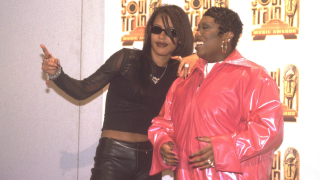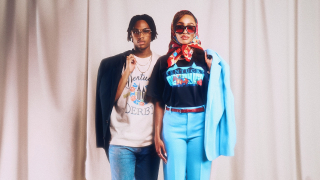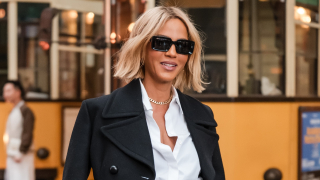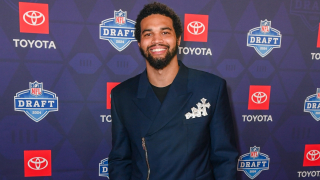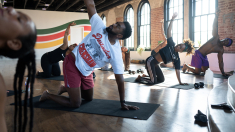Suzan-Lori Parks is one of this generation’s most defining voices in stage and theater. The Pulitzer Prize-winning playwright of Top Dog/Under Dog is back on stage yet again with a new work, this one connected to a musical icon. Parks is behind the musical adaption of The Harder They Come, based on the 1973 movie that stars renowned reggae artist Jimmy Cliffs.
"The timing is extraordinary because I've been working on this project for almost 10 years," Parks declares to EBONY. "We are doing the world premiere right around the movie's 50th anniversary." Here's how Parks added a contemporary spin to the story, and why "Black joy" should come with a little heartache.
EBONY: How did you get involved with turning Jimmy Cliff's definitive movie into a contemporary musical?
Suzan-Lori Parks: Years ago, Justine Henzell, who is the daughter of The Harder They Come movie director Perry Henzell said, "That's the person I want to write the book for this musical." I think having a contemporary retelling of the story means having a Black woman's voice tell the story. The original movie was in the mode of a blaxploitation movie, Jamaica style: guns flashing and people dying in a hail of bullets. I wanted to roll the wheel forward because when you elevate one character, everyone else rises and it gets much more interesting. I also have a really strong connection to the people in this in this story. My grandfather on my dad's side was from Jamaica. When I saw the film, my first response was, "Oh, my people are so beautiful." I started with respect to the original material and to the Jamaican people and then with a love for the music.
Alongside Jimmy Cliff's music, you actually wrote several songs for the show?
One of the really interesting parts of adapting this into a stage musical, there are only about two moments in the film where the characters actually sing, so I had to create dramatic contexts through the songs we added. I had access to the whole Jimmy Cliff catalog. I was at my computer, my iPads set up on either side, and I was flipping through Spotify and Apple Music to find the right songs. Our producers were also able to get the licensing for what we've called Jamaican classics. So you have Desmond Dekker and Toots and the Maytals. When I couldn't find a song in various catalogs, I said, “I’m writing a song here.” I wrote three of the songs, including “The Ballad of Ivan.” I wouldn't claim these are reggae songs, but they're reggae-infused and they fit the show.
Even with its tragic ending, how is this a story of Black empowerment?
We ended the show with Cliff’s iconic “The Harder They Come,” which is an upbeat song. What happens is sad, but they can't kill our song and that’s Black joy. It’s that pride and love of community, the love between a young man and his wife, between a mother and son. And we learn a lot about friendship.
How do you stay focused when you’re writing a Pulitzer Prize-winning book?
The spirit is very present in my life, and that’s not necessarily about religion. I really have a very strong spiritual practice. I feel as though I have things to do in the world: to help, to serve, to perform. And I am very clear about that.
What do you think Black female writers need to bring to the table so we can have more of our stories told on stage?
I feel like sometimes writers are encouraged to do Black joy which means many different things to many different people. In my experience, what I see sometimes that’s called Black joy is just frothy dessert. That's nice, and we can smile and laugh. But when you step out of the theater, or you turn off the TV and you've turned your head, you know that's not reality. You're actually being anesthetized to forget and your skills at dealing are reduced. I love to find ways—because we as Black people have an amazing capacity to deal and we have superpowers that are being tranquilized by our world news weariness–to have diamonds in the dirt. You’ve got to dig for it. We have the ability to process. And so I would like people to embrace that complexity of our history.
You’re the writer-in-residency at The Public. What’s coming down the pipeline for you next?
I’m in rehearsals for Plays for the Plague Year. I wrote a play a day during the lockdown and 25 songs. We have a company of actors and a band and we'll perform about 100 of the plays in one night. It's like a cabaret: you do a little play, sing a song and do another little play. So we feel all the feelings and have a lot of laughs and we turn out all right.
The Harder They Come, now playing at The Public’s Newman Theater through April 9, 2023.






